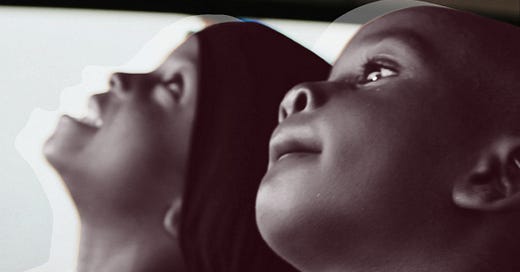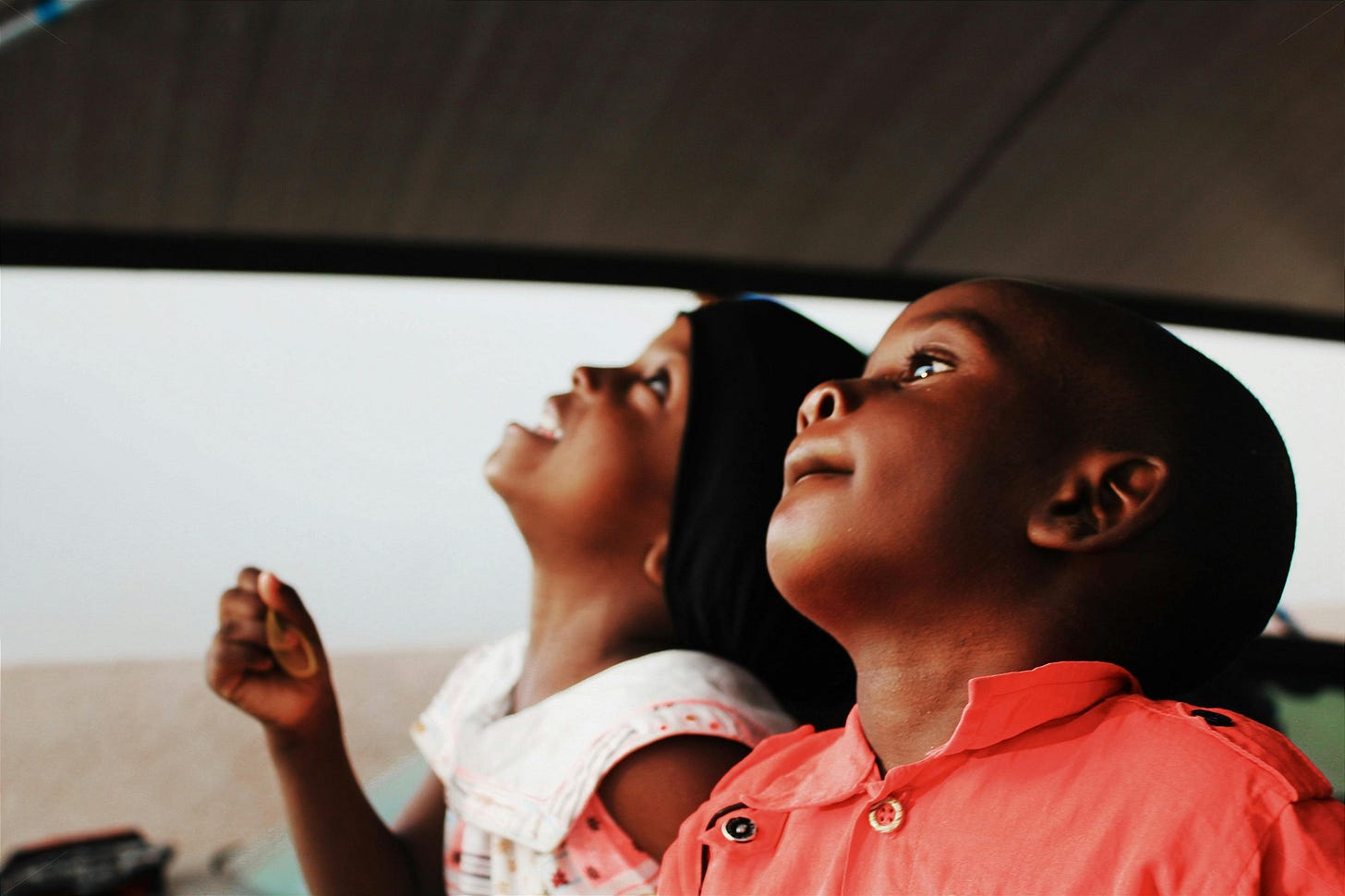Once You Go Black, You Can Never Go Back to Being a Child
This Poem is a Reckoning with the Stolen Childhoods of Black Youth
They never saw baby fat—
only curves.
Never heard a child’s voice—
only “attitude.”
Never saw us learning—
just “disrupting.”
We were born into suspicion,
handed responsibility like it was a rattle.
Told to “act our age”
before we ever had a chance
to be it.
They looked at our bodies
and called us grown.
Called us woman.
Called us man.
But we were still scared of the dark,
still dreaming of cartoons and fruit snacks.
Still hoping someone would tuck us in
instead of
pat us down.
Because once you go Black,
you never go back.
That’s what they say.
But no one warned us
that being Black meant
never being seen as soft.
Never being held without suspicion.
Never being protected without question.
We were eleven,
but they saw twenty.
We were nine,
but they saw danger.
They measured our worth
by how quickly they could strip it.
By how many hands they could put on us
before anyone cared to ask our age.
We wore pigtails and they called us fast.
We wore hoodies and they called us thugs.
We played outside,
and they played God.
They looked at Black skin
and saw license.
To touch.
To punish.
To take.
They want our rhythm, our flavor,
our lips, our thighs,
our slang, our sweat—
but never our innocence.
That, they steal early.
That, they erase without grief.
And when the world opens its mouth to say,
“Once you go Black…”
what it means is:
Once we decide you’re grown,
you are fair game.
You are burden.
You are body, not baby.
You are guilty until you can prove
you are human.
They handcuff our boys before puberty.
Expel our girls before they get their periods.
Tell us we’re too much—
when all we are
is young.
But Black doesn’t get to be young.
Not here.
Not under the white-hot gaze
that sees melanin as consent.
And so we perform:
grown.
hardened.
shatter-proof.
Because softness in Black skin
is a target.
And childhood,
for us,
is a crime scene.
Author’s note:
This poem was born from the inherited grief of Black children who are never allowed to simply be children. It speaks to the adultification of Black bodies—the way our innocence is denied, our vulnerability dismissed, and our existence prematurely criminalized. It confronts the hypersexualization and dehumanization that starts not in adulthood, but in childhood, when the world decides our skin is a reason to strip away our softness.
Tying this piece to Juneteenth is intentional. Juneteenth marks the delayed promise of freedom—two and a half years late for the enslaved people in Galveston, Texas, who didn’t know they were “free.” But freedom, for Black people in this country, has always been partial, conditional, or performative. Even now, freedom doesn’t always mean protection, especially for Black children.
This poem is a reminder that emancipation was not the end of bondage—it just changed form. Today, the shackles are psychological, institutional, and cultural. And one of the heaviest is this: the refusal to see Black children as children.
On this Juneteenth, may we not only celebrate the moment of freedom declared—but also reckon with the freedoms still denied. May we fight for a world where Black children are allowed joy, softness, safety—where they are allowed to be young, and to stay young, as long as they need.
With love,
j w





